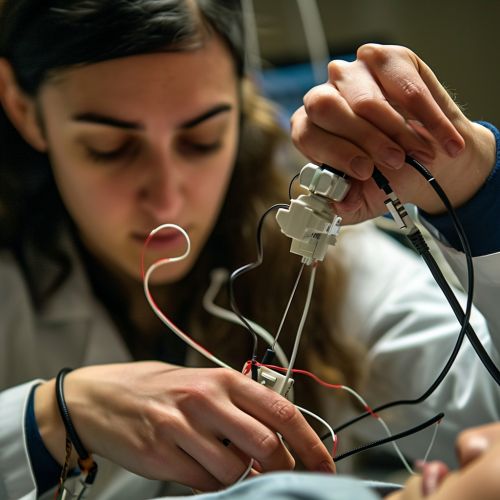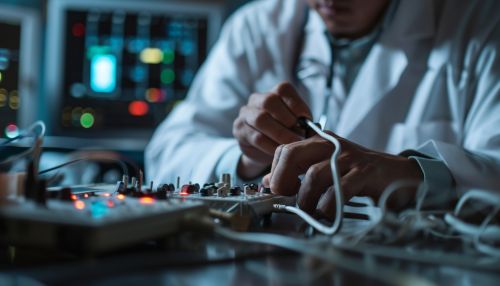Clinical Neurophysiology
Overview
Clinical neurophysiology is a medical specialty that studies the central and peripheral nervous systems through the recording of bioelectrical activity, whether spontaneous or stimulated. It encompasses both research regarding the pathophysiology along with clinical methods used to diagnose diseases involving both central and peripheral nervous systems. Examinations in the clinical neurophysiology field are not limited to tests conducted in a laboratory. It is thought of as an extension of a neurologic consultation. Tests that are conducted are concerned with measuring the electrical functions of the brain, spinal cord, and nerves in the limbs and muscles. It can give the precise definition of site, the type and degree of the lesion, along with revealing the abnormalities that are in question. Due to these abilities, clinical neurophysiology is used to mainly help diagnose diseases rather than treat them.


History
Clinical neurophysiology has a rich history that dates back over a century. The field has evolved significantly over time, with advancements in technology and understanding of the nervous system greatly enhancing its diagnostic and therapeutic applications. The earliest studies in the field were conducted in the late 19th and early 20th centuries, with pioneers such as William Grey Walter and Hans Berger making significant contributions to our understanding of the electrical activity of the brain and nervous system.
Techniques
Clinical neurophysiology uses a variety of diagnostic techniques to measure and monitor nervous system function. These techniques include EEG, EMG, EP, and PSG. Each of these techniques has its own specific applications and limitations, and they are often used in combination to provide a comprehensive assessment of a patient's neurological function.
Electroencephalography (EEG)
Electroencephalography (EEG) is a technique used to record the electrical activity of the brain. It involves the placement of electrodes on the scalp to detect and record patterns of electrical activity and is used in the diagnosis of various neurological disorders such as epilepsy, sleep disorders, encephalopathies, and brain death.
Electromyography (EMG)
Electromyography (EMG) is a technique used to record the electrical activity of muscles. It involves the insertion of a needle electrode into a muscle to detect and record electrical signals. EMG is used in the diagnosis of neuromuscular disorders, including peripheral nerve disorders, motor neuron diseases, and muscle diseases.
Evoked Potentials (EP)
Evoked potentials (EP) are a type of electrophysiological test that measures the electrical responses of the nervous system to specific sensory stimuli. These tests can be used to assess the function of the sensory pathways, including the auditory, visual, and somatosensory systems.
Polysomnography (PSG)
Polysomnography (PSG) is a comprehensive test used to diagnose sleep disorders. It involves the simultaneous recording of multiple physiological variables during sleep, including brain electrical activity (EEG), eye movements (EOG), muscle activity (EMG), and heart rhythm (ECG).
Clinical Applications
Clinical neurophysiology is used in the diagnosis and management of a wide range of neurological disorders. These include, but are not limited to, epilepsy, sleep disorders, neuromuscular diseases, and neurodegenerative disorders. In addition, clinical neurophysiology techniques can also be used to monitor neurological function during surgery and in the intensive care unit.
Training and Certification
Training in clinical neurophysiology involves a residency in neurology followed by a fellowship in clinical neurophysiology. Certification is obtained through examination by the American Board of Psychiatry and Neurology (ABPN) or the American Board of Clinical Neurophysiology (ABCN).
